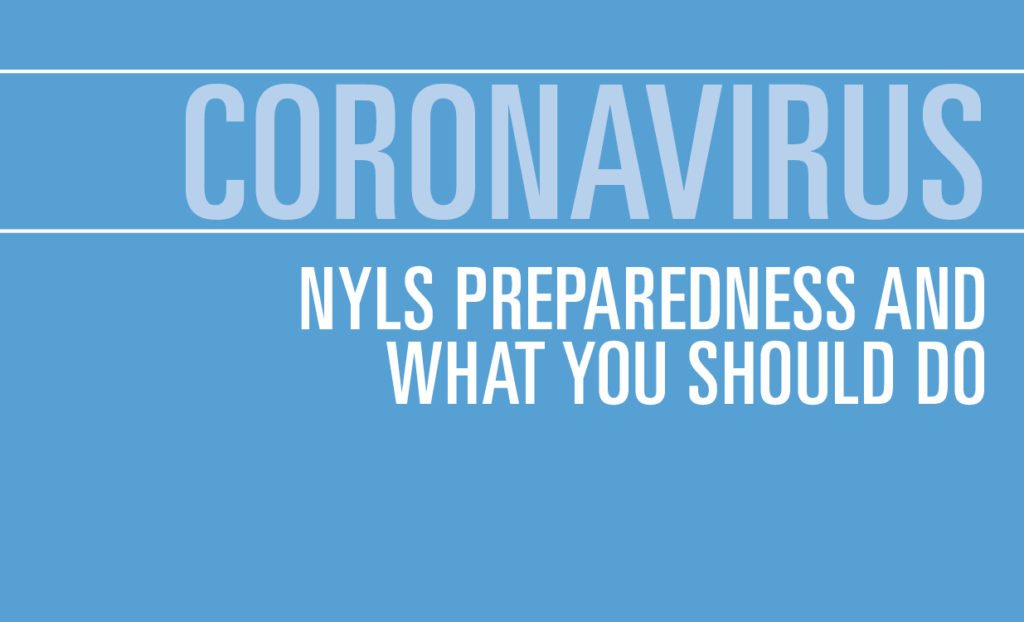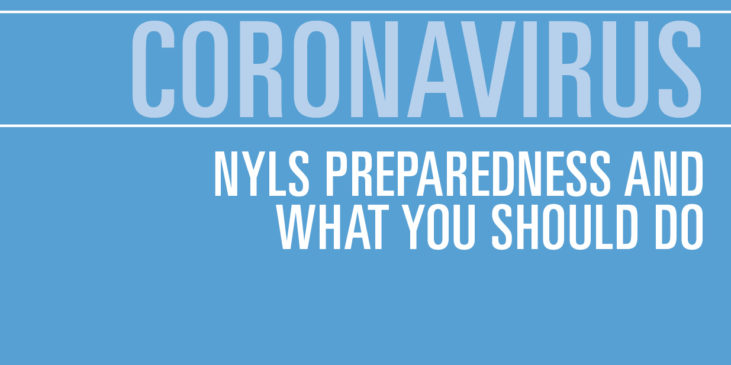
As the new coronavirus (also known as COVID-19) continues to spread globally, protecting the health and safety of the NYLS community remains a critical priority.
NYLS’s management team is taking proactive steps to make sure the School is fully prepared, including employing best practices to minimize risks schoolwide and following the guidance of federal, state, and city public health agencies.
What Community Members Should Do
NYLS asks all students, faculty, and staff to be partners in preparedness:
Stay informed. Make sure your contact information in NotifyNYLS—the School’s emergency messaging system—is up-to-date. Watch your email, NYLS’s website, and NYLS’s social media channels for updates.
Stay calm. Stick to health information from trusted sources, like the New York City Health Department and the CDC.
Communicate right away if you might be sick. If you recently traveled to an affected area and have a fever and cough or shortness of breath, let a doctor know right away. Students, faculty, and staff affected by coronavirus should let the School know.
Avoid spreading germs. Per the New York City Health Department:
- If you’re sick, stay home.
- Wash your hands often with soap and water for at least 20 seconds, or use an alcohol-based hand sanitizer.
- Avoid touching your eyes, nose, or mouth with unwashed hands.
- When coughing or sneezing, cover your mouth and nose with a tissue or your sleeve—not your hands.
- Avoid close contact with people who are sick.
- Do not shake hands. Instead, wave or elbow bump.
- If you have family or friends who are elderly, have compromised immune systems or chronic respiratory or coronary issues, do not visit them if you feel sick.
- Clean and disinfect frequently touched objects and surfaces using a regular household cleaning spray or disinfecting wipes.
Travel smart. If you’re planning travel outside the United States—including for Spring Break 2020—review and follow the CDC’s travel health guidance. Since conditions can change quickly, continue to check as your travel date approaches.
Be mindful of IT security issues. There have already been many reports of bad actors claiming to represent the CDC and the World Health Organization. If you receive phishing emails or other outreach along these lines, tell the Office of Information Technology right away.

